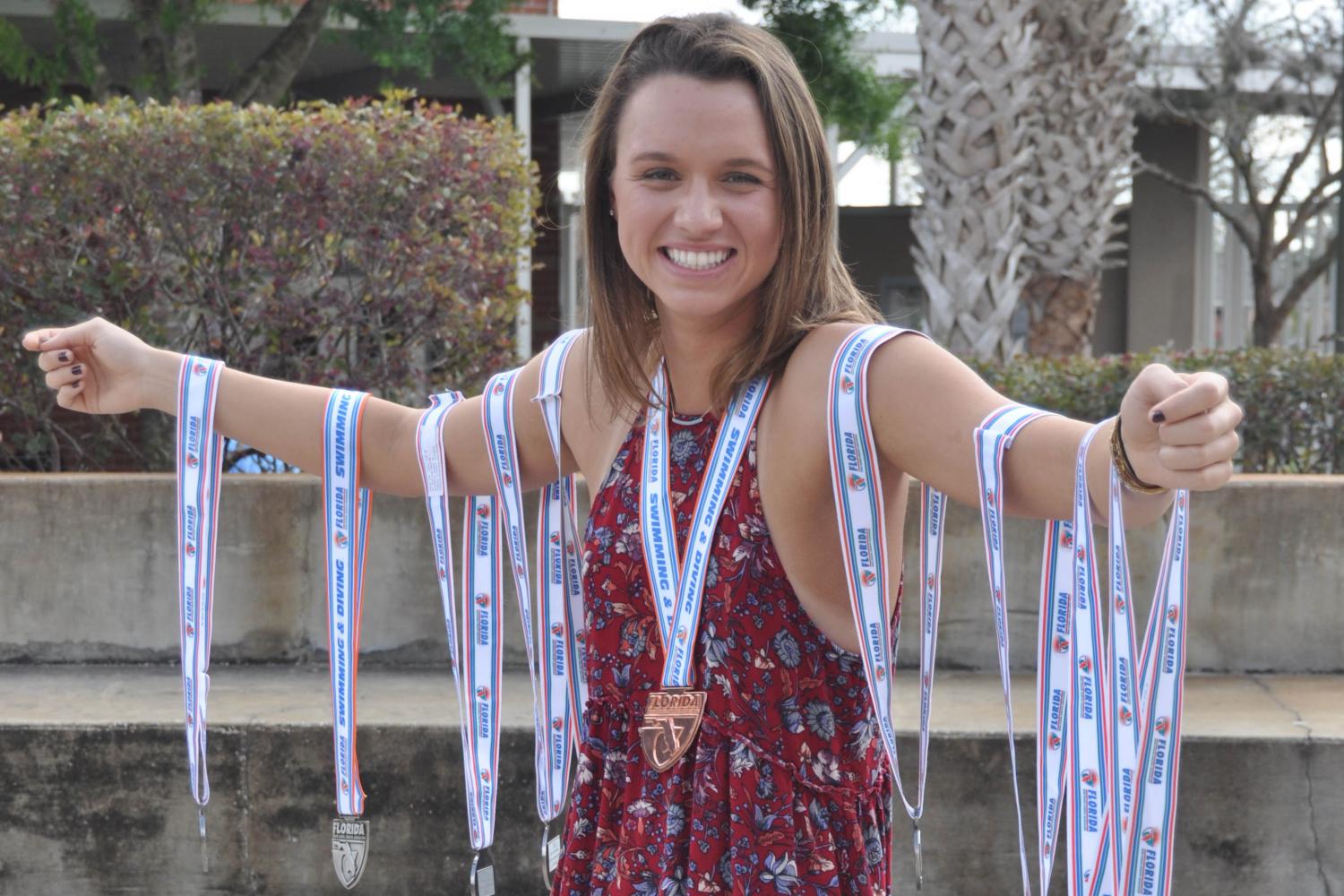Diving into college
photo by Jessie Burton
Boddiford with her collection of medals won throughout her four years competing in high school swimming tournaments.
Stepping onto the U.S. Naval Academy campus, senior Ashley Boddiford watched as the sailboats glided over the Severn River. This was Boddiford’s fourth college tour with her family, and she hoped it would be her last. Up until that day, Boddiford was not convinced by previous school visits that she would be swimming at a college level. However, after talking with the USNA coaches and viewing the traditional school, she became eager to join the team by the fall.
While most seniors spent their high school career taking as many AP classes possible for academic scholarships, athletes like Boddiford spent hours training for the moment when they would receive a scholarship by committing to play a college sport.
“I’m looking forward to having a great atmosphere to practice in and academic support,” Boddiford said. “A new training program will be really exciting, too.”
For the U.S. Naval Academy, swimming includes traveling to different states to compete, spending at least 20 hours in the pool and doing lifts each week throughout the season. According to Boddiford, this will help her prioritize school work and practice throughout the year.
Nevertheless, Boddiford’s expectations are nothing like what she will experience starting in the fall.
One profound difference between high school and college is the amount of time committed to the sport. For 2016 graduate Sarah Gibson, the schedules that were meant to organize her time between women’s rowing trainings and studying on the UCF campus hindered her independence and took away the opportunity to apply for job internships.
“I felt like you sign your life over to them,” Gibson said. “You don’t make decisions about anything, they do, so I never felt independent like you should in college.”
However, Boddiford feels very optimistic about her future swimming career and believes her busy schedule will help her stay focused on her top priorities during the season. The USNA also does not deem swimming as important as academics involving students’ military careers, so schedules will not be as strict as Gibson’s.
“Sometimes I will have to put off swimming to do another activity, like the physical test once a semester,” Boddiford said.
Competition also changes between the high school and college levels. Another 2016 graduate Hannah Lindsay received a scholarship for women’s lacrosse at Queens University of Charlotte and found that her understanding of high school lacrosse was nothing compared to her newly-found understanding of college lacrosse.
“In high school, a lot of people didn’t care for the sport as much as I did. Competition wasn’t always competition, and it doesn’t even compare to the intensity of college. College is so much faster, harder and everything you do matters,” Lindsay said.
Despite the tough competition that lies ahead for Boddiford, her recent times in districts show her level and ability to compete at USNA. Overall, she looks forward to what swimming has in store for her after high school.
“I’m just looking forward to being part of an amazing team of girls who love swimming as much as I do and being in a super supportive environment,” Boddiford said.
Your donation will support the student journalists of Hagerty High School. Your contribution helps us publish six issues of the BluePrint and cover our annual website hosting costs. Thank you so much!







